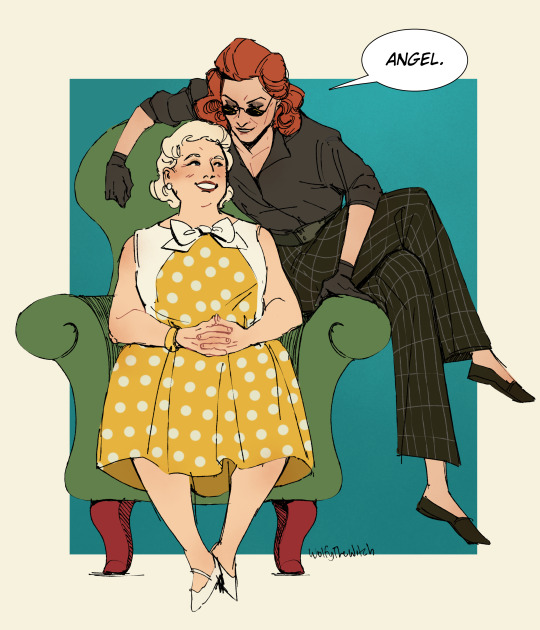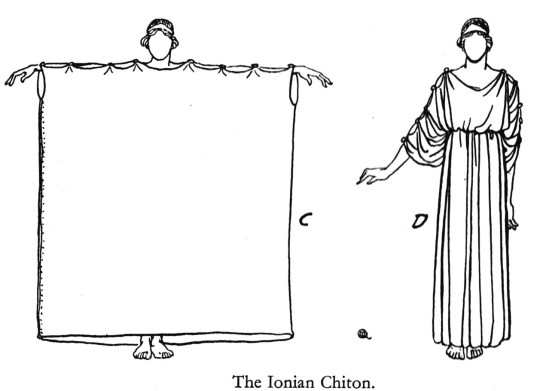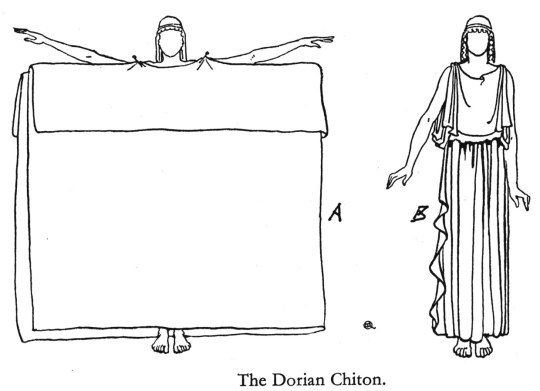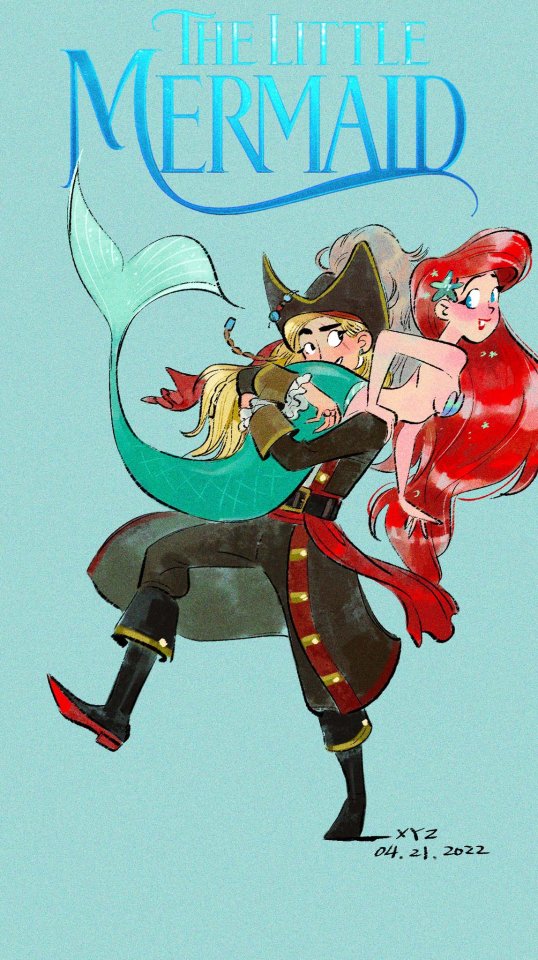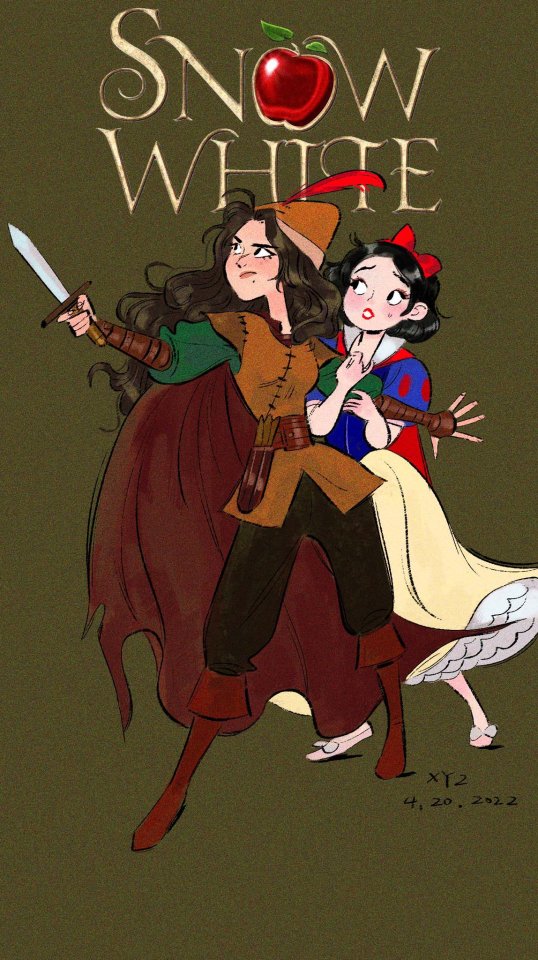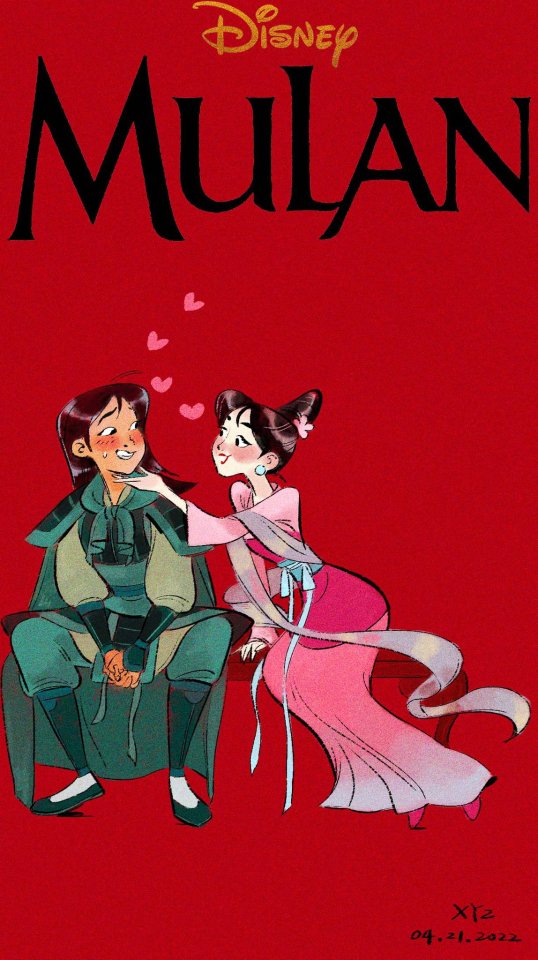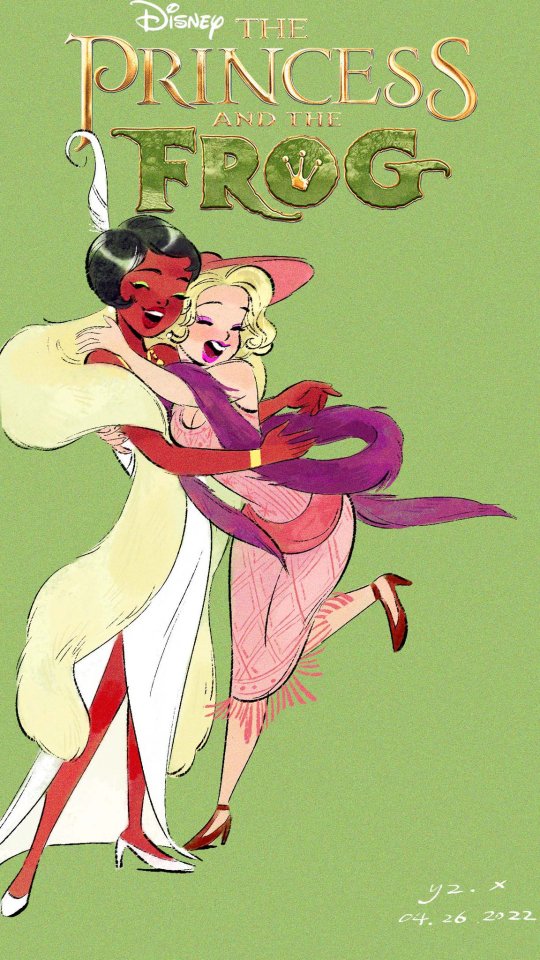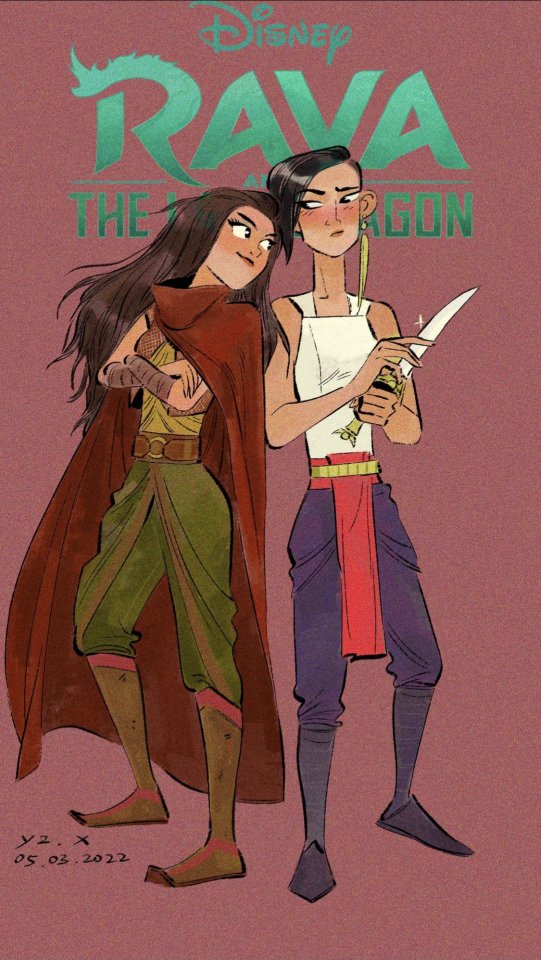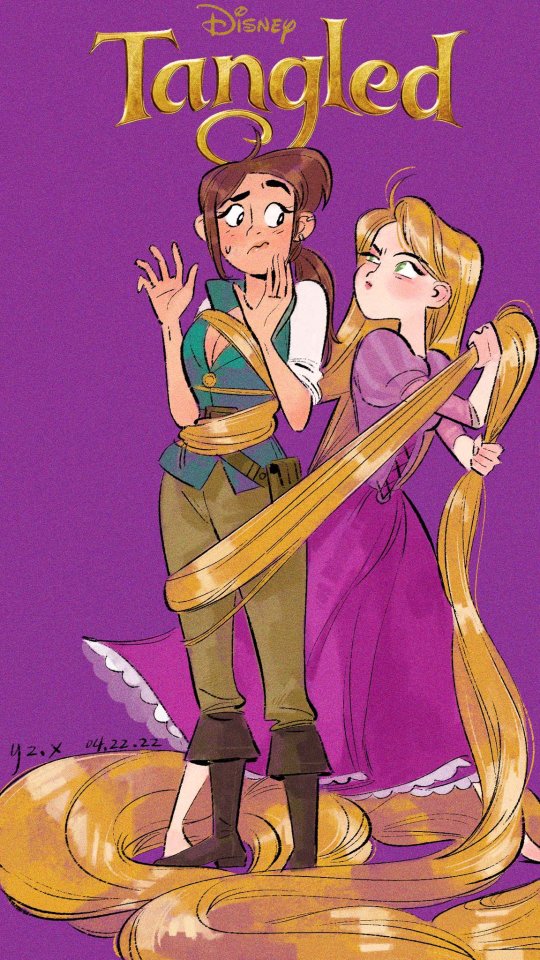Lesfic writer of wlw fantasy romance; I write F/F dark romance as Lianyu Tan. She/her. My book reviews | My website
Don't wanna be here? Send us removal request.
Text

This week we have an interview for you! Chloe and Val sit down with Lianyu Tan, author of The Wicked and the Willing, a dark f/f vampire novel which we LOVED.
Check out the interview at inmediales.com or wherever you get your podcasts!
https://inmediales.com/episode/de8f52e0/interview-with-lianyu-tan
#lianyu tan#the wicked and the willing#in media les#podcast#sapphic vampire#sapphic#sapphic vampires
5 notes
·
View notes
Text
Spoiler-Free Advance Review:
Exordia by Seth Dickinson
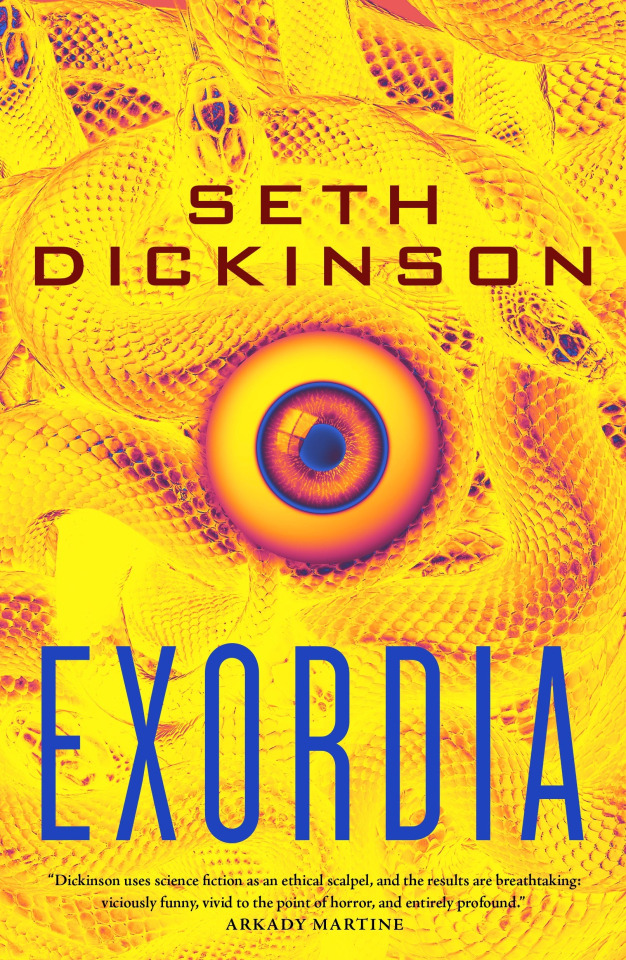
I could not put this book down, my god. Staying up super late multiple nights because I couldn’t stop reading is such a great problem to have, and Exordia gave me that problem more than any book I’ve read in a few years.
This is a very different book than Baru, but Seth’s evocative prose and dark humor is familiar from page one, and the laser focus on defamiliarizing real world injustices is again the core of the work. Despite being far more immediate (Exordia is set during the Obama administration in our world, with an alternate history beginning from the moment the book starts), the heaviness of the topics never gets overwhelming. There’s some incredible (and extremely fitting) tonal dissonance here, with every perspective character having their own sense of disaffected humor about the apocalyptic situation they’ve been thrown into.
I described this to my friend after just starting as “if the Books of Sorrow were written with Gideon the Ninth’s tone and just straight up in our world,” and I think that remains true throughout. There’s a huge amount of references peppered in, and it helps maintain that lighter tone to balance the despair of what is essentially a doomsday clock ticking down throughout the book - and it helps keep things grounded, honestly. I never felt it took away from the gravity of things, or was unnatural - after all, if I, an early 21st century sci fi nerd, was thrown into some fucked up alien bioweapon mystery, it’s hard to say my first thought wouldn’t be “oh shit, this is just like the Andromeda Strain!”
Having seven (eight?) different protagonist (or deuteragonist, I don’t know which they qualify as) PoVs is pretty wild but works perfectly here. Every character has such a unique outlook that you can instantly figure out whose head you’ve popped into even before any identifying names or things are mentioned - Seth’s mastery of the tonally cohesive PoV shifts was something I had loved in Tyrant, especially, and they’re equally impressive here. The characters are lovable, hatable, and everything in between - and each as mentioned is so distinct and compelling that I can’t say there was a single character who I was unhappy to get into their head. And that’s saying something, given who some of these characters are, but I’ll leave the specifics a surprise. Predictably, my favorites were the dysfunctional autistic butch-femme lesbians, but I really loved all of them in the end.
The base premise is almost comical in how small it starts to how much it escalates - a cynical, disillusioned Kurdish genocide survivor, Anna Sinjari, meets a terrifying (and yes…very hot. I’m a simple woman) alien in Central Park, and this seemingly chance encounter sees her roped into a small group of scientists, soldiers, and her own mother in a desperate countdown to solve an otherworldly mystery and save their world. The twists and turns of the plot are intense, so engaging that I was bouncing up and down at times (there’s plenty of sci-fi insanity that I absolutely eat up), and tightly paced.
Seth seems to really enjoy writing ethical dilemmas to great effect, and Exordia is ruthless in that area, taking the base concept of the trolley problem and the moral justification for what someone would sacrifice for the greater good and carving it apart for narrative weight. What greater good does the sacrifice serve? Is it actually good? Who gets to make the choice, and do they have a choice but to make it? There’s a lot to dig into here, and Exordia is a four course meal.
One aspect of this simply taking place in our world, rather than being an alternate universe like Baru, is that the defamiliarized commentary is even more on the nose. Whereas Baru is a commentary on empire and homophobia as a whole, transparently pulling from primarily American history of genocide and imperialism to shape a culture unlike our own in many ways to defamiliarize this moral exploration, Exordia is just literally about real world American imperialism and enabling of genocide in the MENA region, primarily the ramifications of the military industrial complex’s usage of drone warfare and the extremist regimes armed and encouraged by “counterterrorism.”
All this sets the stage for the question of what happens when a bigger fish arrives, one just as hell bent on empire building and justifying its own atrocities. The sci-fi intervention into this banal evil is at the same time a reflection of that evil, and asking if the world has the capacity for resistance to both. Exordia’s answer is profound, and far from easy, but entirely fitting for the ethical dilemma that runs throughout the book, creeping up on you slowly as you start to recognize what shape it takes in this story.
The central material conflict of the book, a locked box mystery of sorts that you piece together with the characters, is fucked up and fun and scary, a reality shifting threat that treads the line between body horror, meta-narrative, and lovecraftian math. It’s extremely cool, and I think it’ll be right up the alley of fans of The Andromeda Strain, The Locked Tomb, The Books of Sorrow and other parts of Destiny lore, and a lot of other SFF stories where ethics, horror, and mystery mix together.
I don’t want to say too much about the climax and the ending - going into this book without knowing too much was an incredible experience that had me on the edge of my proverbial seat - but the ending left me asking myself some very similar questions as I had at the end of Traitor, and I cannot wait for a reread when the physical book is in my hands to see what little foreshadowed things I can pick up on.
I don’t think people are going to be quite as completely emotionally Destroyed at the ending of this one as Traitor, but…it is very much a Seth Dickinson book, and they have quite the talent for making every thread tie together at the end to make the reader feel every emotion at once and realize that this could never have gone any other way. I cried, I laughed, sometimes simultaneously, and a book that can do that to me is entirely worth the experience - and what an experience this was.
Absolutely fucking incredible, I want more of these characters and everything they’re wrapped up in, 10/10.
I received an ARC of this novel from NetGalley in exchange for an honest review.
81 notes
·
View notes
Note
very intrigued by baru cormorant. what's it about?
The world's most lesbian autistic accountant decides the only way to destroy the eugenicist colonizers that took over her homeland and killed one of her father's is to gain power within the system and bring it down by its own methods. It's very hard fantasy, with only ambiguous fantastical elements, more focused on social and economic elements of a fictional trade empire. It's got some of the greatest world and character building I've ever read, and having read the third book finally I can safely say that while it's grimdark and pulls no punches, it isn't relentlessly hopeless or painful. If you liked the locked tomb series you might like the plot structure, although they are very different tone wise
Also it contains some really great exploration of queerness both within cultures that normalize it, within cultures that forbid it, and within cultures that have their own gender and sexuality rules that are restrictive in their own way, not just cis-het supremacy. Also the love of my life Tau Indi Bosoka, federal prince of Oriati Mbo and nonbinary icon
295 notes
·
View notes
Text
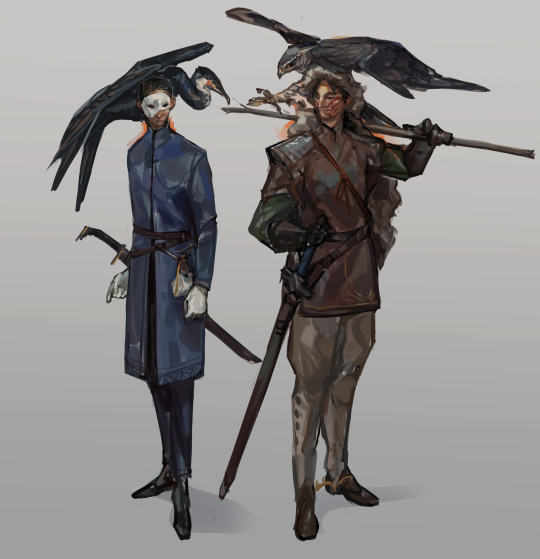
the imperial accountant baru cormorant, and the duchess of vultjag
3K notes
·
View notes
Text
I wrote this because I am a queer woman who craves queer history, and researching the past helps me navigate my identity in the present. ... This is a love letter to the queer women who paint the history books lavender.
-Danielle Scrimshaw, She and her Pretty Friend: The Hidden History of Australian Women who Love Women (2023)

I'd highly recommended everyone (especially queer Australians) check out She and Her Pretty Friend by Danielle Scrimshaw! It's the first book of its kind in Australia, exploring the history of queer women in Australia through a series on individual's stories. We were also lucky enough to interview Danielle earlier this month!
235 notes
·
View notes
Text
I hate conflict free books I hate "good" pure queer rep I hate oppression-free fantasy universes I hate cozy feel good fluffy stories I hate "pure" desexualised sapphic yearning,, I love violence and revolution and sex and angst and murder <3
758 notes
·
View notes
Note
Rae D. Magdon's Song of Stars would also count! Fantasy, open door romance.
Do you know of books where the protagonist and deuteragonist are rivals and have known each other mostly their whole life and they become lovers when they reach their adulthood (not necessarily adulthood, any other age is fine too)
Sorta like childhood friends who are also rivals and become lovers
i don't have any childhood friends/rivals to lovers but i do have rivals to lovers
night tide by anna burke
i kissed shara wheeler by casey mcquiston
amelia westlake by erin gough
cow girl by kirsty eyre
future leaders of nowhere by emily o'beirne
tell me how you really feel by aminah mae safi
i kissed alice by anna birch
mangos and mistletoe by adriana herrera
i think i love you by auriane desombre
hani and ishu's guide to fake dating by adiba jaigirdar
21 notes
·
View notes
Video
tumblr
Love demands sacrifice. Her blood. Her body. Even her life....
Singapore, 1927. Verity Edevane needs blood. And not just anyone's blood. She craves the sweet, salty rush from a young woman's veins, the heady swirl of desire mixed with fealty—such a rarity in this foreign colony. It’s a lot to ask, but doesn't she deserve the best?
Gean Choo needs money. Mrs. Edevane makes her an offer Gean Choo can't refuse. But who is her strange, alluring new mistress? What is she? And what will Gean Choo sacrifice to earn her love?
Po Lam needs absolution. After decades of faithfully serving Mrs. Edevane, Po Lam can no longer excuse a life of bondage and murder. She needs a fresh start. A clean conscience. More than anything, she needs to save Gean Choo from a love that will destroy them all.
***
A destitute maidservant must choose whom to love: her vampire mistress, or the woman trying to save her life in The Wicked and the Willing, a standalone, F/F steamy historical gothic horror vampire novel with a love triangle, a choice of endings and no cliffhangers. This novel contains two mutually exclusive endings, although most of the story is not interactive. Due to the mature content and dark themes, it is intended for adult listeners only. It contains potentially disturbing scenes and an abusive romantic relationship between two women. Further content information is available from the author’s website. This audiobook is performed by Emily Woo Zeller, an AudioFile Golden Voice and an Audie, Earphones, and SOVAS award-winning narrator.
Store links
Audible US
Audible UK
Audible CA
Audible AU
Other stores and formats
Trailer subtitles
Gean Choo: I’m taking a job. The Edevane house.
Bee Leng: The cursed house?
Verity: You don’t know how long I’ve been waiting for you.
Po Lam: Remember the rules. No blood in the house.
Gean Choo: No blood in the house…
Verity: I’m going to take care of you. And you’ll take care of me. Won’t you, dear?
Po Lam: Don’t pity her. She’s not like you or I, understand?
Gean Choo: What are you, Mem?
Verity: … Hungry.
BLOOD.
LUST.
MURDER.
LESBIANS.
The Wicked and the Willing
Spring 2023
lianyutan.com
#the wicked and the willing#emily woo zeller#lianyu tan#sapphic#lesbian fiction#chinese lesbians#gothic horror#gothic romance#butch#femme#singapore#1920s#horror#horror romance#romantic horror
20 notes
·
View notes
Text

— Lianyu Tan, from “The Wicked and the Willing.”
7K notes
·
View notes
Text
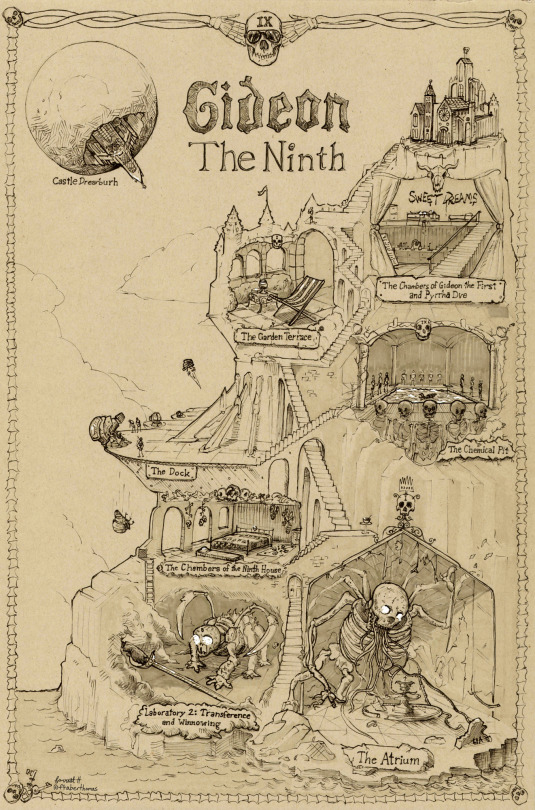
I recently took a dynamic sketching class and decided to do a visual map of Gideon the Ninth as my final project! I'm really happy with how it turned out!
Medium: micron pen, grey toned comic markers, and white gel pen on toned paper
Dimensions: 12x18
9K notes
·
View notes
Note
this may be a silly question but if Iscend isn't described as definitively nonwhite and the Clarified are associated with whiteness already, how is it whitewashing to interpret her as a white woman? the way you broke down how she's described makes it sound ambiguous to me
I don't think it's silly to ask for clarification on issues you don't understand. But your premise is wrong - Iscend is unambiguously nonwhite. That information is conveyed in a way that an audience used to a white default might overlook, though.
The thing is, The Masquerade series actively and deliberately avoids presenting whiteness as a default. It is established quickly that "typical" Falcresti people have brown skin. Throughout the books, it is established in fairly short order that Oriati and Maia people, as well as their offshoots, are also not white. The only major ethnicity with white skin are the Stakhieczi, which is noted frequently throughout the books as something of an oddity.
And that's critical. It's an oddity. Nonwhite is the default. White is something strange to be remarked on. The number of times Baru's narration lingers on Cartone's or Svir's whiteness is enormous. There is no ambiguity about their whiteness, because when Baru is in frequent proximity to a white person, she makes explicit note of it, because it's unusual.
Now notice that she never once makes that sort of observation about Iscend. What we have instead are multiple observations about Iscend's Falcresti beauty - a nonwhite beauty. Falcrest does not idealize whiteness, because the concept white as a privileged class does not exist in Falcrest.
Or, tldr, we know Iscend isn't white because Baru would be remarking on it constantly if she was.
Based on the way you phrased your question, I assume you don't need an explanation of why it's a problem to whitewash an unambiguously nonwhite character.
#baru cormorant#the traitor baru cormorant#the tyrant baru cormorant#the monster baru cormorant#Iscend comprine
83 notes
·
View notes
Text
“They asked me to tell you what it was like to be twenty and pregnant in 1950 and when you tell your boyfriend you’re pregnant, he tells you about a friend of his in the army whose girl told him she was pregnant, so he got all his buddies to come and say, “We all fucked her, so who knows who the father is?” And he laughs at the good joke…. What was it like, if you were planning to go to graduate school and get a degree and earn a living so you could support yourself and do the work you loved—what it was like to be a senior at Radcliffe and pregnant and if you bore this child, this child which the law demanded you bear and would then call “unlawful,” “illegitimate,” this child whose father denied it … What was it like? […] It’s like this: if I had dropped out of college, thrown away my education, depended on my parents … if I had done all that, which is what the anti-abortion people want me to have done, I would have borne a child for them, … the authorities, the theorists, the fundamentalists; I would have born a child for them, their child. But I would not have born my own first child, or second child, or third child. My children. The life of that fetus would have prevented, would have aborted, three other fetuses … the three wanted children, the three I had with my husband—whom, if I had not aborted the unwanted one, I would never have met … I would have been an “unwed mother” of a three-year-old in California, without work, with half an education, living off her parents…. But it is the children I have to come back to, my children Elisabeth, Caroline, Theodore, my joy, my pride, my loves. If I had not broken the law and aborted that life nobody wanted, they would have been aborted by a cruel, bigoted, and senseless law. They would never have been born. This thought I cannot bear. What was it like, in the Dark Ages when abortion was a crime, for the girl whose dad couldn’t borrow cash, as my dad could? What was it like for the girl who couldn’t even tell her dad, because he would go crazy with shame and rage? Who couldn’t tell her mother? Who had to go alone to that filthy room and put herself body and soul into the hands of a professional criminal? – because that is what every doctor who did an abortion was, whether he was an extortionist or an idealist. You know what it was like for her. You know and I know; that is why we are here. We are not going back to the Dark Ages. We are not going to let anybody in this country have that kind of power over any girl or woman. There are great powers, outside the government and in it, trying to legislate the return of darkness. We are not great powers. But we are the light. Nobody can put us out. May all of you shine very bright and steady, today and always.”
— Ursula K. Le Guin (via nightkitchentarot)
50K notes
·
View notes
Text
you know what actually pisses me off? when I finally start to feel a smidge of confidence in my writing ability and then some JERK POSTS A SINGLE LINE FROM A TERRY PRATCHETT NOVEL AND IT’S BETTER THAN ANYTHING I WILL EVER WRITE NO MATTER HOW MANY MILLENNIA I SPEND TRYING!
117K notes
·
View notes
Text







I’ve uploaded the OFMD art to redbubble, so prints are available :)
link
4K notes
·
View notes
